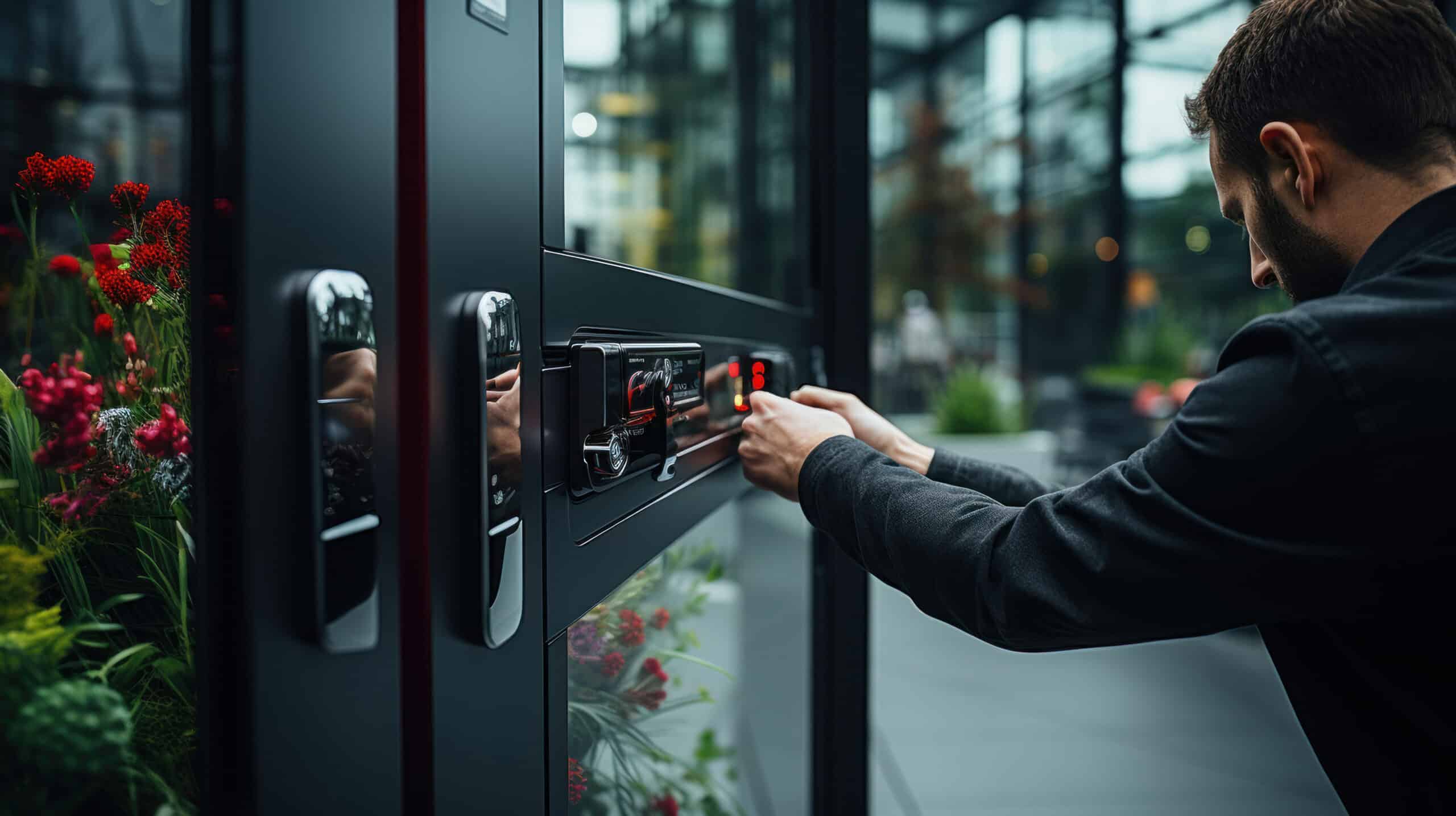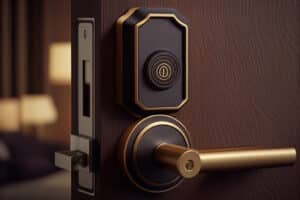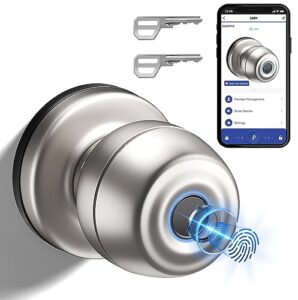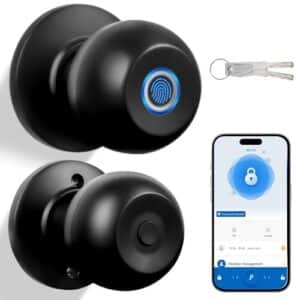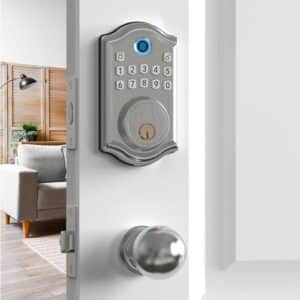Can Smart Door Locks Be Hacked?
Key Takeaways
- Smart door locks can be hacked, as numerous reports and studies have highlighted their vulnerabilities.
- The design and security protocols of smart door locks play a significant role in their vulnerability to hacking.
- Authentication methods and password vulnerabilities can be easily exploited by hackers to gain unauthorized access to smart door locks.
Smart door locks have become increasingly popular in recent years, offering convenience and enhanced security for homeowners. However, with the rise of connected devices, concerns about the vulnerability of smart door locks to hacking have also emerged. So, can smart door locks be hacked?
The answer is yes. Numerous reports and studies have highlighted the vulnerabilities of smart door locks, which can potentially allow hackers to gain unauthorized access to homes and compromise security. Let’s explore the various findings and risks associated with smart door lock hacking.
KeyWe Smart Lock Vulnerability
A security vulnerability was discovered in the KeyWe smart lock, which allowed hackers to intercept network traffic between the lock and the mobile app, giving them the ability to unlock doors. The design of the lock made it easy for attackers to bypass security mechanisms and replicate the hack. Unfortunately, the lock’s firmware does not support over-the-air updates, rendering it impossible to fix the vulnerability.
Weaknesses in Design and Security Protocols
Manufacturers’ design and security protocols play a significant role in the vulnerability of smart door locks. Weaknesses in these areas can be exploited by hackers to gain unauthorized entry. Additionally, the lack of regular updating and cybersecurity education for owners further increases the risk of hacking.
Authentication Methods and Password Vulnerabilities
Smart door locks often rely on passwords and other authentication methods to verify user identity. However, these can be easily compromised if not properly implemented. Hackers can employ various techniques, such as plain text password vulnerabilities, decompiling APK files, device spoofing, replay attacks, and even physical screwdriver attacks, to bypass authentication and gain access to the lock.
Lack of Device Access Control Systems
Another vulnerability of smart door locks is the absence of robust device access control systems. Without proper access controls, hackers can exploit weaknesses in the lock’s software or firmware to manipulate its functionality and gain unauthorized entry to a home or property.
Protecting Against Hacking
While the risks of smart door lock hacking are evident, there are steps homeowners can take to protect themselves and minimize the vulnerabilities:
- Choose a reputable and secure smart lock system.
- Use strong and unique passwords, change them regularly.
- Install antivirus and encryption software on connected devices.
- Monitor external connections and ensure secure network configurations.
- Configure the router with a unique name and password.
- Manage permissions and access control for users.
- Enable multifactor authentication for added security.
- Regularly update firmware to ensure the latest security patches are applied.
- Have backup policies in place to mitigate potential risks.
By implementing these measures, homeowners can significantly reduce the likelihood of falling victim to smart door lock hacking.
Conclusion
While smart door locks offer convenience and enhanced security, it is crucial to acknowledge their vulnerability to hacking. The risks associated with weak design and security protocols, authentication vulnerabilities, and lack of device access control systems should not be taken lightly. Homeowners must stay informed about potential threats and take proactive steps to protect their homes and privacy.
Related Websites:
FAQs:
Q: What are the advantages of using smart door locks for home security?
Smart door locks provide convenience, allowing you to lock and unlock your doors remotely. They also offer enhanced security features such as activity logs, temporary access codes, and integration with home automation systems.
Q: What are the common hacking methods used on smart door locks?
Common hacking methods include brute force attacks, where hackers try numerous combinations to guess your password, and wireless signal interception to gain unauthorized access to your smart door lock system.
Q: What are the best practices for securing smart door locks?
To secure your smart door locks, use strong, unique passwords and avoid sharing them. Regularly update firmware and software for improved protection, and consider using two-factor authentication for an extra layer of security.
Q: What security features do reputable smart door lock manufacturers provide?
Reputable smart door lock manufacturers offer features such as advanced encryption protocols, tamper detection, auto-locking, and the ability to disable lost or stolen keys. They also provide regular firmware updates to address security vulnerabilities.
Q: What are the recommended practices for users to minimize the risk of hacking?
To minimize the risk of hacking, it is recommended to regularly monitor and review access logs, disable unnecessary features, change access codes periodically, and educate household members about the importance of smart door lock security.

